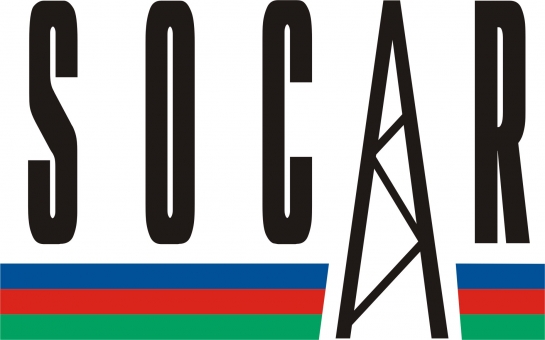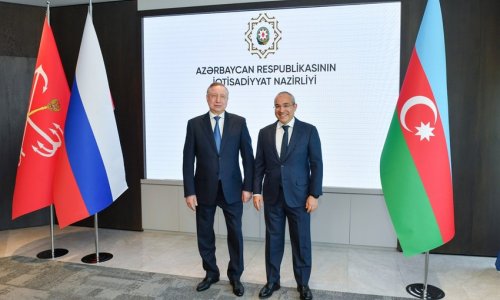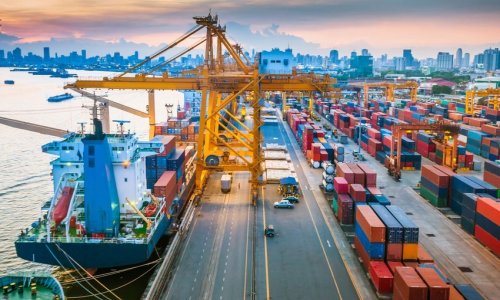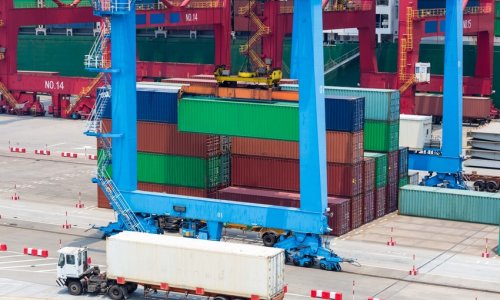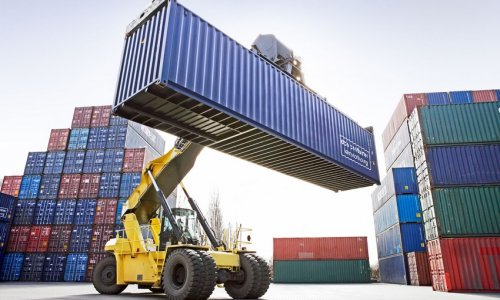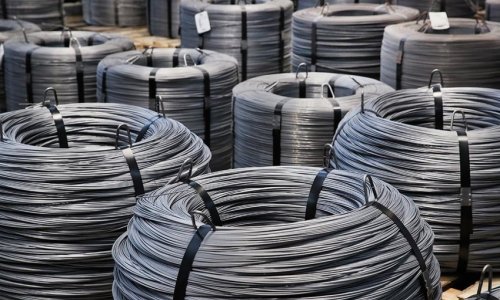The State Oil Company of the Azerbaijan Republic (SOCAR) is evolving from a domestic energy producer into an international player with extensive operations in the Caucasus and European markets. Over the forecast period the Economic Intelligence Unit expects it to diversify its operations in these markets, with a specific focus on countries that form part of the Southern Gas Corridor. The company is also turning its attention to the Middle East, and hopes to position itself as a major state-owned energy company with a strong international profile.
Since the coming on stream of the Baku-Tbilisi-Ceyhan (BTC) pipeline in 2005 and the South Caucasus Pipeline (SCP) in 2006, SOCAR has started to diversify its business model, and has increasingly sought to position itself as a significant regional and global energy company.
It has invested heavily in countries that form part of the strategic Southern Gas Corridor, which will transport gas from Azerbaijan to European markets via Turkey once the second phase of the Shah Deniz gas field comes on stream in 2018. SOCAR plans to invest US$17bn in Turkey by 2018. The vast majority of this will focus on the construction of the Trans-Anatolian Gas Pipeline (TANAP). The pipeline will connect with the SCP (which will also be expanded), and will run from the Georgian-Turkish border to the Turkish-Greek border.
SOCAR currently has an 80% share in TANAP (the remaining 20% is held by Turkish firms TPAO and BOTAS); and the company has agreed to sell 12% of its share to BP (UK). The pipeline will have an initial capacity of 16bn cu metres a year, with the possibility of increasing this to 31bn cu metres at a later date. Under a deal reached in June 2011, Azerbaijan agreed to supply Turkey with 6bn cu metres from the second phase of Shah Deniz Phase 2-the remaining 10bn cu metres will be exported to European markets in 2019, once the Trans-Adriatic Pipeline (TAP) is completed.
Entering markets along the Southern Gas Corridor
SOCAR holds a 20% stake in the TAP project, which will transmit gas from the second phase of the Shah Deniz project to Greece, Albania and Italy. Azerbaijan has shown an increasing interest in entering markets that will form part of the Southern Gas Corridor in western Europe and the Balkans. A EUR400m (US$550m) deal concluded in December 2013 between SOCAR and the Greek gas transmission network, DESFA, secured SOCAR a 66% stake in the Greek company. DESFA will be responsible for the operation and maintenance of the Greek section of TAP. In a statement to the press, the president of SOCAR, Rovnag Abdullayev, said that the acquisition will enable the company to play a more active role in TAP. As a result, SOCAR will be able to obtain additional revenue from the operation of the pipeline. The company has also indicated that it is interested in using its acquisition of DESFA as a stepping stone to invest in the gas network in the Balkans.
SOCAR is currently in talks with the Albanian government that could see it invest in the development of the country's gas infrastructure.
Over the forecast period, SOCAR is likely to make further investments linked to the Southern Gas Corridor. One option that could be revived is the Azerbaijan-Georgia-Romania Interconnector (AGRI). This project would require the construction of a liquefied natural gas (LNG) terminal at the Georgian Kulevi oil export terminal, which is owned by a subsidiary of SOCAR-SOCAR Energy Georgia. The terminal currently exports up to 10m tonnes of oil a year to world markets. If the AGRI project were to go ahead, gas would be transported across the Black Sea in tankers to a Romanian LNG terminal (this would also need to be constructed). AGRI would have an initial capacity of 2bn cu metres, eventually rising to 8bn cu metres. The decision to go ahead with TANAP led to AGRI being put on the back burner. However, it is possible that the project may be revisited once TANAP comes on stream. Talks were held between SOCAR and the Romanian government on AGRI in December 2013, but no statement on the future of the project was announced.
Building a retail network abroad
The company has also been increasing its involvement in regional and European operations. In 2006 the company established SOCAR Energy Georgia. Through this subsidiary, SOCAR is expanding its network of petrol stations operating in the country to 106, and has plans to build a further 14 stations. SOCAR Energy Georgia is already the largest foreign investor and the leading taxpayer in the country. In addition to its fuel network and oil export terminal at Kulevi, it has also undertaken extensive work to develop the country's gas network. It constructed 3,800 km of gas pipeline between 2009 and 2013, and currently supplies gas to 195,000 customers in Georgia. Further expansions to the gas supply network are expected over the next two years, and the company intends to increase the number of households it supplies to almost 300,000.
In late 2011 the company made its first move into west European downstream operations through the acquisition of the ESSO Schweiz (Switzerland) network of 170 service stations, for an undisclosed sum. As part of the deal, SOCAR also acquired ESSO Schweiz's oil and gas canister business and the company's aviation business. SOCAR's most recent acquisition was the purchase of the remaining 10% share in SOCAR Petroleum Romania, a network of petrol stations, on January 15th 2014, giving it 100% ownership of the company. SOCAR initially entered the Romanian market in 2011, following the purchase of a 90% share in Romtranspetrol. The deal will see it invest EUR35m in its Romanian subsidiary and will strengthen its position in the Romanian market. At present the company owns 22 service stations in Romania and plans to increase this to 300 in the coming years. Outside Azerbaijan, SOCAR has a stake in the fuel retail sectors of Georgia, Romania, Switzerland and Ukraine.
In the future, the company plans to make further investments into the downstream operations of the energy markets in Europe, including developing its role as a provider of energy products to industrial and aviation customers. SOCAR is reportedly considering acquiring Austrian firm OMV's 95.75% stake in Turkey's Petrol Ofisi, which is one of the main fuel suppliers inside the country. The firm operates over 2,300 petrol stations across the country, ten fuel terminals, two LPG plants and 31 aviation units. The company also holds a 61% stake in the Petkim petrochemicals complex and is currently constructing a new refinery, container port and power station in Izmir. SOCAR is the largest foreign investor in Turkey. In the medium term the company plans to continue its expansion into the downstream operations of the energy sector in European markets.
SOCAR also wants to become a major player outside the Caspian and European regions. In 2011 a subsidiary of the company, the Caspian Drilling Company (CDC), purchased a 5% stake in an oilfield in Israel's Med Ashdod oilfield-its first move into exploration and production outside the Caspian basin. Initial estimates from the consortium developing the field indicated that it could contain up to 120m barrels of oil. Further acquisitions into international energy projects are expected over the forecast period.
Drivers of strategy
SOCAR's investment strategy is driven by a number of considerations. Like Gazprom, its Russian counterpart, the company believes that ownership of downstream assets will allow it to maximise its revenue from gas it supplies to Turkey and Europe, increase its economic and political leverage in transit states, and increase the security of demand. The EU has attacked this practice vis-à-vis Gazprom as monopolistic and anti-competitive, and has sought to force the company to divest downstream energy assets. At present, SOCAR's investments in Europe have encountered no such difficulties, in part, perhaps, as the Southern Gas Corridor satisfies the EU's broader aim of diversifying gas supplies away from Gazprom's control.
The internationalisation of SOCAR's investment strategy also reflects a desire to ensure a life for the company after the exhaustion of Azerbaijan's resource base. The country has reached its peak, and oil production is forecast to start to fall from 2016. By expanding abroad, the company is seeking to acquire the skills, assets and access necessary to remain a significant international energy player, even after Azerbaijan's own energy resources start to decline. EIU anticipates that SOCAR will work to deepen its influence over gas transmission networks and the retail sector in Europe. Outside of the Caucasus and Europe the firm will seek strategic opportunities that allow it to develop its energy portfolio and advance its technological know-how.
(EIU)
ANN.Az

